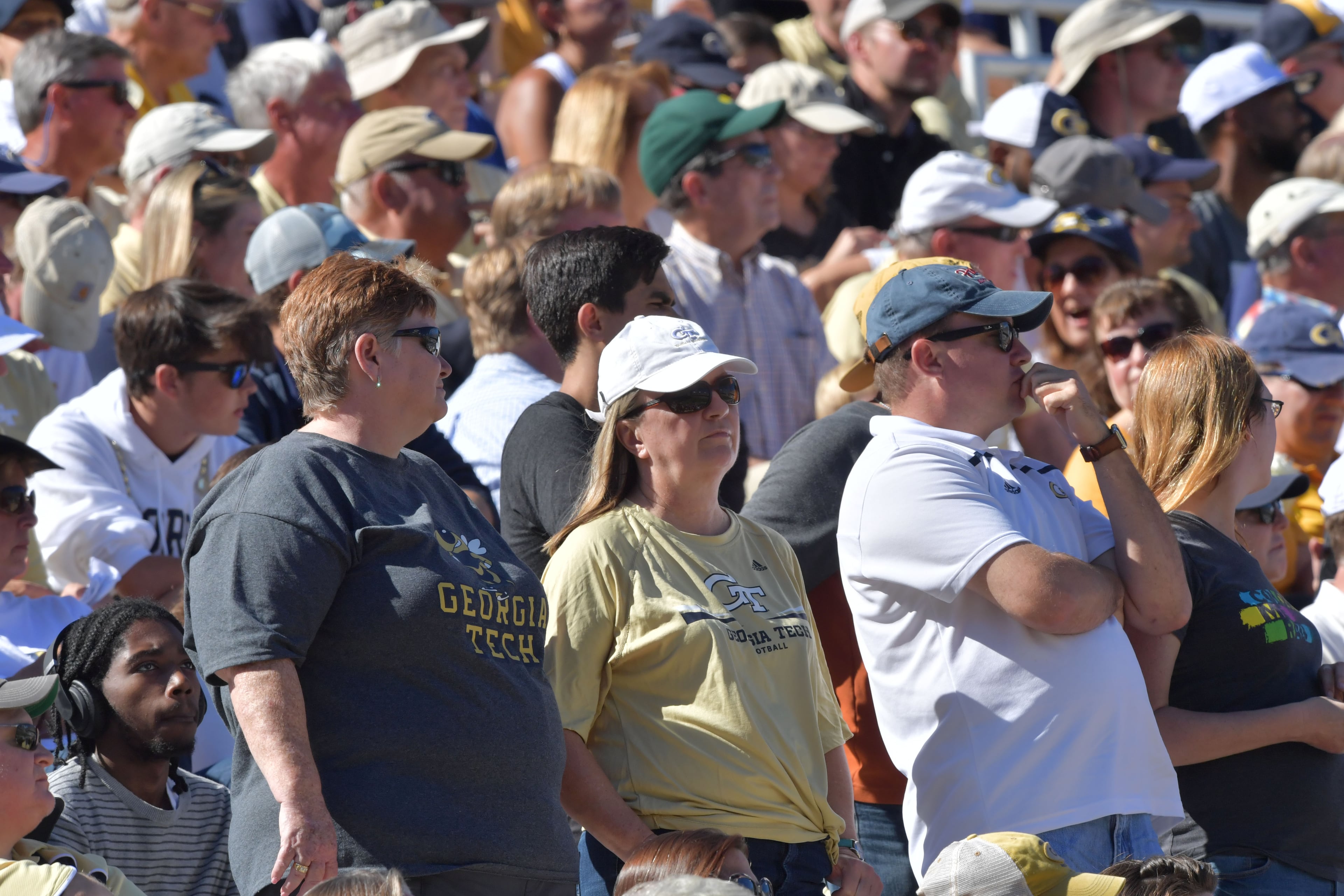Problem solving awaits Georgia Tech in open date





























In coach Paul Johnson’s tenure, Georgia Tech had played back-to-back games without turnovers only twice before the Yellow Jackets had no giveaways against Bowling Green and Louisville.
The Jackets had also fumbled just twice in those two games after dropping the ball 14 times in their first four games. They had also committed only one penalty on offense in the two games after getting flagged eight times against Alcorn State, South Florida, Pittsburgh and Clemson. Finally, Tech had been tackled for a loss just twice in 123 offensive snaps against the Falcons and Cardinals. Tech’s first four opponents had amassed 25 negative-yardage plays against the Jackets.
Against a defense far better prepared and able to deal with the Jackets, Tech could not deliver a third consecutive clean game. With Duke's assistance, in a game whose importance in the scope of the season was unmistakable, Tech returned to its self-defeating practices in its 28-14 loss Saturday. the Jackets had three turnovers, six fumbles, two offensive penalties, 11 negative-yardage plays. (One of the turnovers and fumbles was on special teams.) The Jackets will go into their open date with an identity crisis to solve: For the final five games, can the offense be the one that didn't beat itself in destroying overmatched Bowling Green and Louisville, or will the truest version of itself be the one that consistently gets in its own way?
"We've got to do a better job, clearly, coaching ball security," Johnson said Saturday after the loss to Duke. "That comes back to us. You can't have the ball out swinging when you're in a crowd and have it on your hip. And I feel like we try to stress it, but, clearly, we're not stressing it enough."
Putting the ball on the ground has been a near constant in Johnson’s tenure. The ball-handling that Johnson’s option offense makes fumbles almost unavoidable, but the Jackets have had difficulty limiting them. Tech averaged at least two fumbles per game in nine of Johnson’s first 10 seasons and 2.3 over that entire span. The outlier was 2014, when the Jackets averaged 1.4 fumbles per game en route to 11 wins and the Orange Bowl championship.
Johnson’s teams at Navy demonstrated that better ball security was possible in his spread-option offense, routinely averaging fewer than two fumbles. The Midshipmen have continued to do so since, staying under two fumbles per game in the first 10 seasons since Johnson’s departure and averaging 1.5 over that span.
After the Duke game, Johnson repeated his mantra that the Jackets have a small margin for error, a condition that has made the fumbles, penalties and missed assignments that cause negative-yardage plays so costly. Starting in 2015, Tech is 5-11 in one-possession games.
“The bottom line is, don’t put the dang ball on the ground,” Johnson said.
Against Duke, the Jackets gave away their stake in the game by fumbling the ball on three consecutive plays late in the third quarter, leading to three Duke touchdowns in a span of 1:49 that took the score from 7-7 to 28-7.
“It’s frustrating to do that but I just think we just need to get back to the way we were doing it, not turning the ball over,” center Kenny Cooper said. “The past two weeks, no penalties, really, and no fumbles and look at the scores of those (games). That just killed us (Saturday).”
With new defensive coordinator Nate Woody, the Tech defense has delivered the turnovers that Johnson has so craved. Tech took three possessions away from Duke on Saturday, bringing the season total for turnovers to 16. (Johnson’s other defensive priority, inducing punts, is a little more slow going. Duke converted 5 of 10 third downs, keeping Tech opponents’ season rate at 49 percent.)
To avoid missing out on a bowl game for the third time in the past four seasons, the Jackets will have to solve their conundrums on offense, along with cleaning up special teams and pass defense. After the game, Johnson was incensed with what he called “stupidity” on the offensive line’s part for changing blocking calls at the line of scrimmage that were unwarranted.
“I don’t know how it happens,” he said. “Poor coaching on my part I guess is how it happens.”
Johnson also described a tendency for the offense to press.
“I think sometimes, when we start out and we don’t have immediate success, guys try to do too much, and they don’t just kind of go with the flow and with the system, and then it gets worse, as opposed to just kind of playing,” Johnson said.
Tech will have an extra week of practice and rest time to solve their conundrum before playing at Virginia Tech in two Thursdays. The Jackets’ chances of making a bowl game and restoring a semblance of calm within a fan base that has grown increasingly unsettled may depend on it.
It won’t be easy. Of Tech’s five remaining opponents, only North Carolina has a losing record. The Hokies are especially difficult to beat on Thursday nights, when they’re 6-0 against Georgia Tech. Miami is 8-2 against Johnson, the best record of any of the eight teams that the Jackets play annually. Virginia is a surprising 4-2 with a win over then-No. 16 Miami on Saturday. No. 6 Georgia is daunting.
Then again, Georgia Tech has also beaten the Hokies three of the past four. The Jackets should have beaten Miami on the road last season. They’ll play Virginia at home, where it has typically handled the Cavaliers. As for Georgia, the Bulldogs seem unscalable, but the Jackets have won in their past two trips to Athens.
It’s time for the Jackets to problem solve.
“It’s just something we’ve got to fix as a team moving forward,” B-back Jerry Howard said of the offensive mistakes. “A couple games ago, we struggled with penalties and stuff, so we had that fixed for two games. So we’ve just got to go back to the basics and start over.”


